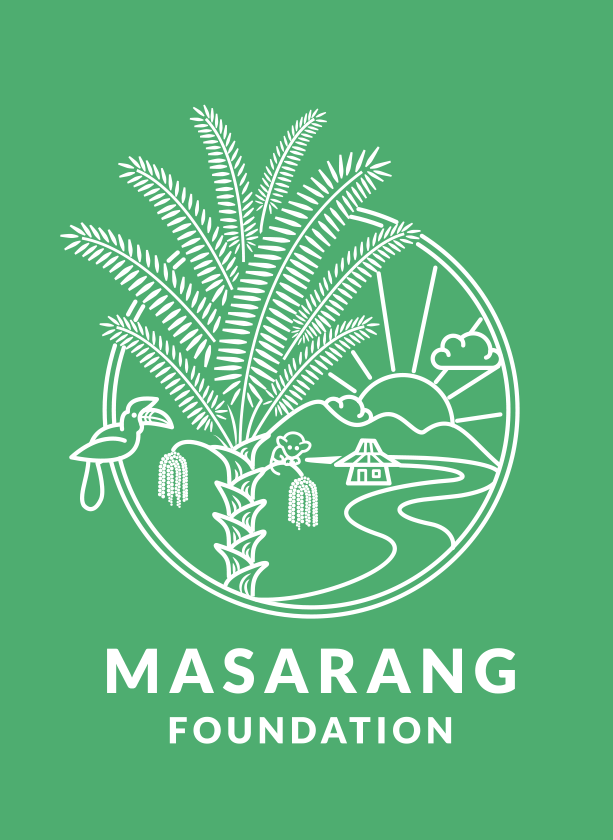Last month, the Masarang Foundation opened their first palm sugar production facility outside of Sulawesi island. The facility could be built thanks the support of the Dutch AKBH Foundation.
Even though there are thousands of sugar palms around Palus village, the farmers had not yet tapped into their potential. Most people did not know that the sugar palms could be a possible source of income for them, because most people do not know how to tap them, or where to sell the sugar. Now that a production facility is in place, all farmers in the region have a place to go with their sugar juice and get payment on the spot, every day.

Sugar production facility in Palus, West Kalimantan

Rocket Stoves
The facility has a very different setup compared to the sugar factory in Tomohon. There is no geothermal energy in West Kalimantan, so waste wood is used as a heat source for cooking the sugar juice. In order to make sure the least possible wood is used, Masarang has built 20 fuel efficient Rocket Stoves. The stoves are placed right in the middle of the forest, close to the sugar palms. With these rocket stoves, the farmers can cook the juice until it becomes a sirup with about 30-70% sugar content.
Until recently, all farmers in West Kalimantan only knew about two crops to plant as a source of income, either rubber trees or oil palms. With the sugar palm program we have now proved there are other alternatives that actually give a better economic perspective, at a lower investment. The cultivation of sugar palm gives the local farmers a huge economis perspective. With only 6 producing sugar palms, a farmer can already earn a higher income then a farmer with 1 hectare of oil palms, while the investment for 6 sugar palms is at least 90% lower compared to oil palms.

The sugar sirup (above left) is then cooked further in large cooking pans, until it becomes sugar (above right), or is poured in moulds to make sugar blocks (above).
Farmers and communities have responded very enthusiastic to the sugar palm program. A second unit is currently under construction and expected to be finished in April 2016. Masarang has already received requests to build similar facilities from several other districts in the West Kalimantan province and several other provinces, where sugar palms are already abundantly available. We hope this is just the beginning, of a new era of sustainable farming in Indonesia.
